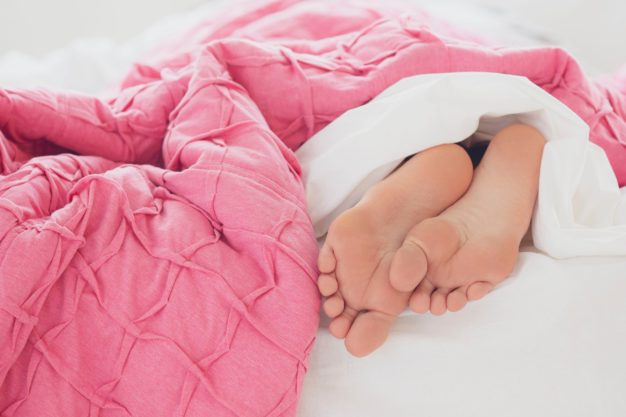Can’t Sleep? Here Are The Keys To Better Sleep This Summer

I have been working in the field of pediatric sleep for over 15 years. I want people to know about the importance of sleep, because our society seems to undervalue its role in good health. We literally clean our brains while we sleep, washing away harmful toxins and making room for memories to be stored. Without adequate sleep, our tissues do not repair, and we cannot fight infection well.
In kids and teens, poor or insufficient sleep is related to poorer organization, poorer memory, and academic problems. It also increases anxiety and decreases creativity, problem solving and emotional control.
Think of sleep as one of the third pillars of health, along with good nutrition and exercise.
Just like the dentist asks you to brush and floss twice a day or your doctor asks you to eat five fruits and vegetables and exercise 30 minutes every day, healthy sleep habits will help you fall asleep faster, stay asleep, and wake more refreshed in the morning. Consistency in following these guidelines is essential to achieving quality sleep.”
Here are my tips for healthy sleep habits:
Keep a consistent sleep schedule.
Wake up and go to bed at about the same time on weeknights and weekend nights. Bedtime and wake time should not differ from day to day by more than an hour.
Establish a regular, relaxing bedtime routine.
Make the 30 minutes before bed wind-down time. Do not watch TV, use electronic devices (smartphones, tablets, etc.) or exercise during this time. Instead, do something relaxing, such as playing with quiet toys, reading a book or listening to soothing music.
Create an environment that is only for sleeping.
This means a dark bedroom that is comfortable and quiet. Make sure the bedroom is not too warm (keep it 74 degrees or lower), as warm temperatures interfere with sleep. It is also very important to get all technology, including TVs, cell phones, computers, tablets, etc., out of the bedroom.

Eat regular meals throughout the day and have a light snack before bed.
Do not eat large amounts of sugar or chocolate just before bedtime.
Exercise regularly, but not too close to bedtime.
The best time to exercise is first thing in the morning or in the late afternoon. Avoid strenuous physical exertion right before bedtime.
Enjoy the sunshine in the morning.
Spend time outside every day, especially in the morning, as exposure to sunlight or bright light helps keep the body’s internal clock on track.
Limit light exposure in the evening, especially after dinner.
Dim overhead lights and reduce the brightness of screens.
Avoid naps if you are having trouble falling asleep at bedtime.
Naps are developmentally appropriate in young children, and some adolescents benefit from a short afternoon nap (30-45 minutes right after school).
Do not consume caffeine after 4 p.m. or within six hours of bedtime.
Caffeine has a half-life of four to six hours, which means it should still be helping you stay awake four to six hours after you take it. Consuming caffeine too close to bedtime makes it hard to fall asleep.
If you have teenagers in the house, keep in mind that most teens’ biology will not allow them to fall asleep any earlier than 10:30 or 11 p.m. And teens need eight-10 hours of sleep per night.
This guest post was authored by Dr. Valerie Crabtree

Dr. Crabtree serves as chief of Psychosocial Services at St. Jude Children’s Research Hospital in Memphis, Tennessee., overseeing numerous departments and clinics that address the psychosocial needs of St. Jude patients and families. She is the co-author of Pediatric Sleep Problems: A Clinician’s Guide to Behavioral Interventions (L. J. Meltzer and V. M. Crabtree).

